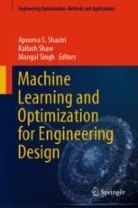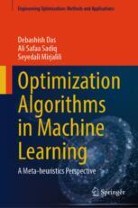
About this book series
Optimization carries great significance in both human affairs and the laws of nature. It refers to a positive and intrinsically human concept of minimization or maximization to achieve the best or most favorable outcome from a given situation. Besides, as the resources are becoming scarce there is a need to develop methods and techniques which will make the systems extract maximum from minimum use of these resources, i.e. maximum utilization of available resources with minimum investment or cost of any kind. The resources could be any, such as land, materials, machines, personnel, skills, time, etc. The disciplines such as mechanical, civil, electrical, chemical, computer engineering as well as the interdisciplinary streams such as automobile, structural, biomedical, industrial, environmental engineering, etc. involve in applying scientific approaches and techniques in designing and developing efficient systems to get the optimum and desired output. The multifaceted processes involved are designing, manufacturing, operations, inspection and testing, forecasting, scheduling, costing, networking, reliability enhancement, etc. There are several deterministic and approximation-based optimization methods that have been developed by the researchers, such as branch-and-bound techniques, simplex methods, approximation and Artificial Intelligence-based methods such as evolutionary methods, Swarm-based methods, physics-based methods, socio-inspired methods, etc. The associated examples are Genetic Algorithms, Differential Evolution, Ant Colony Optimization, Particle Swarm Optimization, Artificial Bee Colony, Grey Wolf Optimizer, Political Optimizer, Cohort Intelligence, League Championship Algorithm, etc. These techniques have certain advantages and limitations and their performance significantly varies when dealing with a certain class of problems including continuous, discrete, and combinatorial domains, hard and soft constrained problems, problems with static and dynamic in nature, optimal control, and different types of linear and nonlinear problems, etc. There are several problem-specific heuristic methods are also existing in the literature.
This series aims to provide a platform for a broad discussion on the development of novel optimization methods, modifications over the existing methods including hybridization of the existing methods as well as applying existing optimization methods for solving a variety of problems from engineering streams. This series publishes authored and edited books, monographs, and textbooks. The series will serve as an authoritative source for a broad audience of individuals involved in research and product development and will be of value to researchers and advanced undergraduate and graduate students in engineering optimization methods and associated applications.
- Electronic ISSN
- 2731-4057
- Print ISSN
- 2731-4049
- Series Editor
-
- Anand J Kulkarni,
- Amir H. Gandomi,
- Seyedali Mirjalili,
- Nikos D. Lagaros,
- Warren Liao
Book titles in this series
-

-
Optimization Techniques for Sustainable Environment Under Uncertainty
- Editors:
-
- Ritu Arora
- Shalini Arora
- Copyright: 2025
Available Renditions
- Hard cover
- eBook
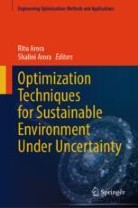
-
Role of Nature-Inspired Algorithms in Real-life Problems
- Editors:
-
- Vanita Garg
- Kusum Deep
- Copyright: 2025
Available Renditions
- Hard cover
- eBook
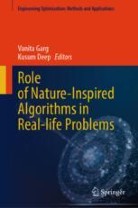
-
Optimization, Uncertainty and Machine Learning in Wind Energy Conversion Systems
- Editors:
-
- Kishalay Mitra
- Richard Everson
- Jonathan Fieldsend
- Copyright: 2025
Available Renditions
- Hard cover
- eBook
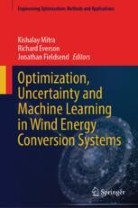
-
Machine Learning and Optimization for Engineering Design
- Editors:
-
- Apoorva S. Shastri
- Kailash Shaw
- Mangal Singh
- Copyright: 2023
Available Renditions
- Hard cover
- Soft cover
- eBook
